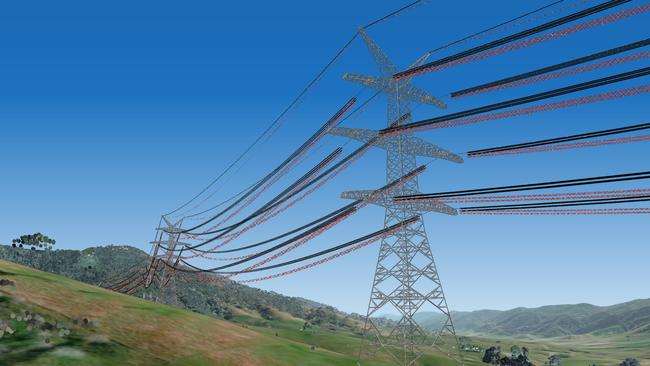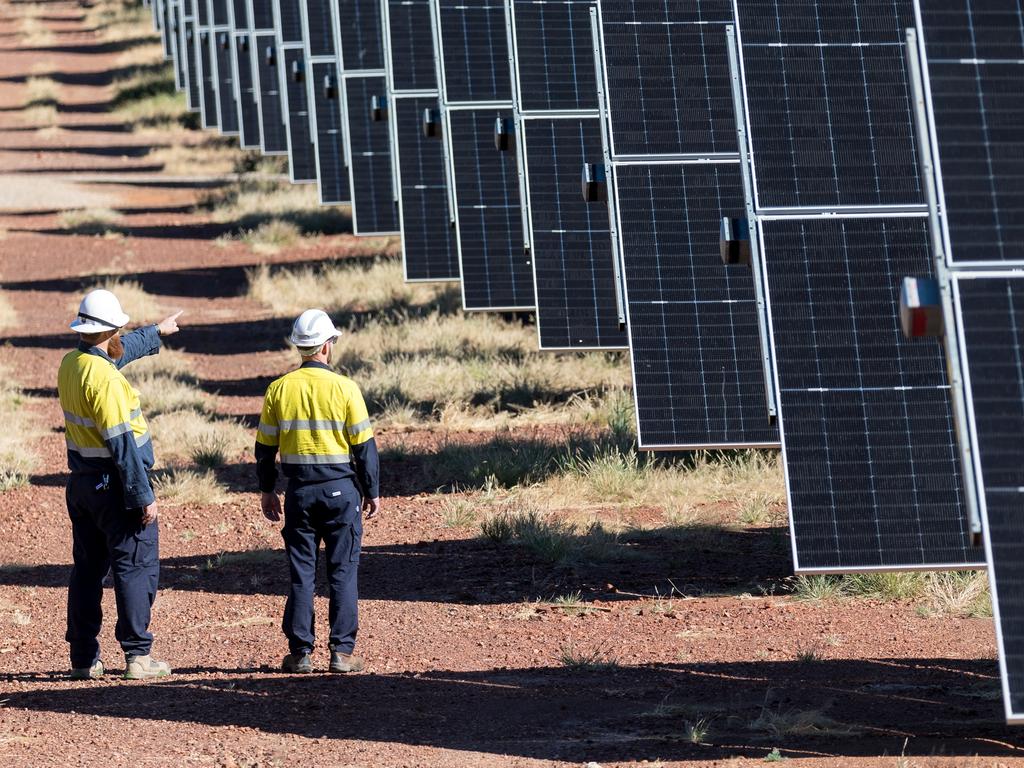Energy giants urge government to abandon transmission congestion plans
Energy ministers are grappling with how to resolve the issue of grid congestion, which occurs when there is more electricity than the system can handle, and supplies are wasted.

Business
Don't miss out on the headlines from Business. Followed categories will be added to My News.
The federal, state and territory governments should stop working on plans to reform how electricity transmission congestion is managed with a major policy change counterproductive and adding to investment risks, Australia’s largest energy companies have warned.
Energy ministers are grappling with how to resolve the issue of grid congestion, which occurs when there is more electricity than the system can handle, and supplies are wasted.
Energy developers are reluctant to commit billions of dollars to build new renewable energy projects without certainty that new capacity will be consumed by households and businesses.
To fix the growing issue, the Australian Energy Markets Commission has been tasked with developing plans to present to energy ministers proposing a scheme including priority access and the creation of a market to trade any excess supplies.
The priority access plan establishes a queue position for new generators that would be adding congestion to the market. When there is congestion, they only get to sell energy into the market based on their place in the queue.
Any excess capacity, the AEMC has proposed, could be traded via a so-called congestion relief market (CRM), where excess supplies could be traded to others that are developing batteries.
But in rare unity, the nation’s largest energy companies, Origin Energy, AGL Energy EnergyAustralia, have urged work to be paused at the very least.
Steve Reid, general manager of regulatory policy at Origin, said recent state and federal policies would control the rollout of new grid-scale renewable energy projects that would limit the prospect for more curtailment. Implementing new, complex rules would therefore be unnecessary and cause unintended problems. Echoing Origin’s views, AGL Energy said plans were so flawed that work needed to be ended.
“We therefore suggest that both the CRM and priority access should be abandoned,” AGL senior manager Anton King said.
Transgrid, one of the biggest players in rolling out transmission across the system, said it was also cautious about the proposed change.
“We believe it is important that the AEMC considers whether ‘priority access’ is necessary or desirable to help enable the transition or whether ‘priority access’ is in essence a needless further complication during the transition,” Transgrid said in a submission.
Elon Musk’s Tesla also raised concerns.
“Transmission access reform is highly complex under any future detailed design pathway, which will undermine new renewable generation due to increasing investor risk and uncertainty,” Tesla said.
The reform’s “proposed treatment of congestion across existing and new generators is unjust and will lead to inefficient operational outcomes”.
Senior industry sources said they expected the recommendations of Australia’s most influential players to be endorsed, especially as the federal Labor government and states desperately move to accelerate the nation’s energy transition.
Labor has set a target of having renewable energy generate 82 per cent of the country’s electricity by the end of the decade. The Australian Energy Markets Operator said the country needed to be installing about 6 gigawatts of new capacity each year, but progress was currently topping out at 3GW-4GW.
In a bid to hasten the rollout, Labor last year said taxpayers would underwrite 32GW of new renewable energy and storage projects.
The scheme sees developers guaranteed a minimum return on new solar and wind projects. Should the wholesale electricity price fall below an agreed threshold, taxpayers would compensate the renewable energy project.
Should the wholesale electricity price exceed a metric, developers would pay the government, a design that removes revenue risk from developers and accelerates investment.
However, critics – most notably EnergyAustralia managing director Mark Collette – say the policy requires time-consuming considerations by bureaucrats and there is no penalty if those chosen do not develop the projects they had promised.
Moving to defend the policy, federal Energy Minister Chris Bowen said the first auction for new renewable energy development had now closed and projects with a combined capacity of 24GW had sought to join the scheme. The federal government in conjunction with states had tendered for just 6GW.
By selecting winners, the government will be able to control where new developments are constructed, and many states and territories are pushing concentrated regions where large-scale developments can be established.
NSW, Victoria and Queensland all have adopted these renewable energy zones, insisting that concentrating the developments will limit the number of transmission lines that need to be built. High-voltage transmission lines are increasingly unpopular, and some communities have vowed to oppose offers of compensation. Opponents insist transmission lines will disrupt their farming operations, significantly damage their property values, and that the compensation is inadequate.
NSW is pushing ahead with five so-called renewable energy zones, and Australia’s most populous state on Thursday issued planning approval for the transmission line for the first of the zones.
The Central-West Orana REZ will be the first of the planned five, in which NSW intends to establish 12GW of renewable energy projects and 2GW of storage, most likely large-scale batteries.
More Coverage
Originally published as Energy giants urge government to abandon transmission congestion plans





